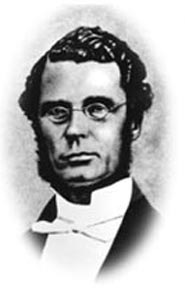According to George William Gordon “Age is a matter of feeling, not of years.” George William Gordon was a famous businessman and politician born in 1820 and died on October 23, 1865. He was born to a slave mother and a planter father who was an attorney to several sugar estates in Jamaica, George William Gordon was self-educated and a landowner in the parish of St. Thomas.
In 1834, the year slavery was abolished (on August 1st); he was elected to the House of Assembly for the parish of St. Thomas. He was 23 years old. Gordon was also a leader of the Native Baptist Movement. As a member of the Jamaica Assembly, Gordon acquired a reputation as a critic of the colonial government, especially Governor Edward John Eyre in the mid-1860s.
He maintained a correspondence with English evangelical critics of colonial policy. He also established his own Native Baptist church, where Paul Bogle was a deacon.
In October 1865, following the Morant Bay Rebellion led by Bogle, Gordon was taken from Kingston, where martial law was not in force, to Morant Bay, where it was. He was tried by court martial, without due process of law, sentenced to death and executed on 23 October. Gordon’s death and the brutality of Eyre’s suppression of the revolt made the affair a cause célèbre in Britain. John Stuart Mill and other liberals sought unsuccessfully to have Eyre prosecuted.
The termination of slavery brought freedom and the right to vote but the majority of the black population did not qualify as they could neither read nor write or afford the high fee that was required. Seeing that many had no land to farm, Gordon subdivided his own lands and sold farm lots to them as cheaply as possible.

He also organized a system through which they could sell their produce at fair prices. Gordon built several churches at his own expense and ordained ministers.
When a severe drought worsened economic conditions for the people and rumours of a return of slavery began circulating, Gordon urged them to protest. As a result of his activism, Gordon developed a reputation as a critic of the colonial government and in particular, Edward John Eyre, Governor of the island.
Eyre denied the terrible conditions the people lived in when in 1865, the secretary of the Baptist Missionary Society of Great Britain, Dr. Edward Underhill, wrote to the Colonial Office in protest on their behalf.
Eyre also sent his comments with another letter that was sent by farmers in the parish of St. Ann asking Queen Victoria for Crown lands to cultivate as they could not find lands on their own. The Queen’s reply that they should work harder made it clear that Eyre had influenced her.
Gordon was arrested and charged for complicity in what is now called the Morant Bay Rebellion in 1865. He was illegally tried by Court Martial and, in spite of a lack of evidence, convicted and sentenced to death. He was executed on October 23, 1865.